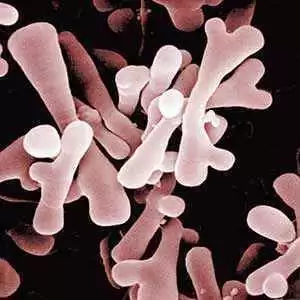
Celiac.com 03/13/2013 - To determine if the probiotic Bifidobacterium natren life start (NLS) strain might affect the treatment and clinical features of patients with untreated celiac disease, a team of researchers recently conducted an exploratory, randomized, double-blind, placebo-controlled study on the effects of Bifidobacterium infantis natren life start super strain in active celiac disease.
The research team included E. Smecuol, H.J. Hwang, E. Sugai, L. Corso, A.C. Cherñavsky, F.P. Bellavite, A. González, F. Vodánovich, M.L. Moreno, H. Vázquez, G. Lozano, S.Niveloni, R. Mazure, J. Meddings, E. Mauriño, and J.C. Bai. They are variously affiliated with the Small Intestinal Section of the Department of Medicine in the Department of Alimentation at the Hospital de Gastroenterología "Dr. C. Bonorino Udaondo," the Department of Immunogenetics of the Hospital de Clínicas "José de San Martín" at the Universidad de Buenos Aires, the Consejo de Investigación en Salud, Ministerio de Salud in Ciudad de Buenos Aires, the Department of Gastroenterology at the Universidad del Salvador in Buenos Aires, Argentina, and the Gastrointestinal Research Group at the University of Calgary in Calgary, Alberta, Canada.
Celiac.com Sponsor (A12):
For their study, the team enrolled 22 adult patients with two positive celiac disease-specific tests.
Over a three week period, patients randomly received two capsules of either Bifidobacterium infantis natren life start strain super strain (Lifestart 2) (2×10 colony-forming units per capsule). All patients consumed at least 12 g of gluten per day for the duration of the test. In all, twelve patients received the bifidobacterium, while ten received the placebo.
At the end of the trial, the team used biopsy to confirm celiac disease in all patients. The primary factor being measured was changes to intestinal permeability. The secondary factor was changes in symptoms and the Gastrointestinal Symptom Rating Scale, and in immunologic indicators of inflammation.
Neither treatment caused significant changes in abnormal baseline intestinal permeability.
In contrast to patients receiving the placebo, patients who received B. infantis experienced significant improvements as measured by the Gastrointestinal Symptom Rating Scale (P=0.0035 for indigestion; P=0.0483 for constipation; P=0.0586 for reflux).
The administration of B. infantis was completely safe. Patients who received B. infantis showed lower ratios of IgA tTG and IgA DGP antibody (P=0.055 for IgA tTG and P=0.181 for IgA DGP).
Patients who received B. infantis also had significantly higher levels of serum macrophage inflammatory protein-1β (P<0.04).
The results indicate that B. infantis may alleviate symptoms in untreated celiac disease. The probiotic produced some immunologic changes, but did not change abnormal intestinal permeability.
The researchers call for further study to confirm and/or expand these results.
Source:
- Open Original Shared Link





Recommended Comments
Create an account or sign in to comment
You need to be a member in order to leave a comment
Create an account
Sign up for a new account in our community. It's easy!
Register a new accountSign in
Already have an account? Sign in here.
Sign In Now